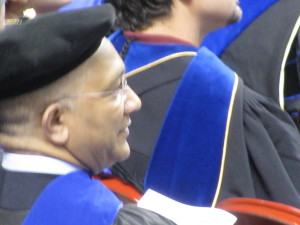[title type=”h3″ class=””]Giving Voice to the Voiceless[/title]
(Continued from “About” page)
My journalism career was “derailed” when I took a graduate seminar with a passionate historian, Cathy Covert, who taught me the value of “history from the bottom up.” To be simplistic, writing history shares with investigative reporting a focus on using multiple sources to answer big questions of “why” and “how” in a dispassionate way. But where reporting draws upon mainly live sources to address current problems, history uses the records of dead people to investigate the past.
While earning a master’s degree, I worked with Laubach Literacy International, where I was reminded daily of the hardships faced by people who cannot read or write. In addition, my male-chauvinist assumptions and behaviors were being challenged by several female friends; through them I was introduced to history written from women’s perspective. Together, these experiences deepened my commitment to documenting the stories of people who are traditionally ignored, marginalized and overlooked.
My specific interest in the history of Liberians took an academic turn in the late 1970s, when I encountered the writings of Dr. Mary Antoinette Brown-Sherman. A devotee of Blyden, she encouraged Liberian scholars to build upon local traditions.
In my view, Dr. Brown-Sherman was the greatest Liberian scholar of the late twentieth century. Her work on the role of the Poro Society in education inspired my research on African spirituality or “the way of the ancestors.” Regrettably, a lot of Liberians pay lip-service to her legacy but fail to heed her admonitions or to build upon her approach.
While in college, I also “discovered” the writings of Dr. Walter A. Rodney, whose best known work is How Europe Underdeveloped Africa. From Rodney I learned that history is made as much by those who till the rice fields as by merchants and monarchs. His History of the Upper Guinea Coast: 1545-1800 is the most important history of the Mano River Region published in the last 50 years. But many scholars in Liberian studies shun Rodney’s works because he did not share their worldview.
Most of my research and scholarship activities relate to investigating history, as well as the intersection of ideology and power in communication.
 I write free-verse poetry (most of which remains unpublished), and I occasionally publish commentaries in the media. But, mostly I write history – Liberian history and media history. To be more precise, you could describe my work as deeply researched historical nonfiction. I co-authored the current edition of the Historical Dictionary of Liberia and published a book on government-press relations in Liberia from 1830 to 1970. The rest of my writings have appeared mainly in peer-reviewed scholarly journals.
I write free-verse poetry (most of which remains unpublished), and I occasionally publish commentaries in the media. But, mostly I write history – Liberian history and media history. To be more precise, you could describe my work as deeply researched historical nonfiction. I co-authored the current edition of the Historical Dictionary of Liberia and published a book on government-press relations in Liberia from 1830 to 1970. The rest of my writings have appeared mainly in peer-reviewed scholarly journals.
As a life-long university professor and administrator, I’ve been paid to do what I love – read, build knowledge and challenge young adults to excel. A few disappointments and regrets aside, my life has been golden.

One reply on “About 2”
Great accomplishments! I know many of my generation (I’m 60) who remember you and follow your work from way back. Thanks for the piece on the so-called PPP in the education sector and for this platform.